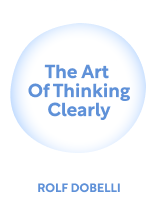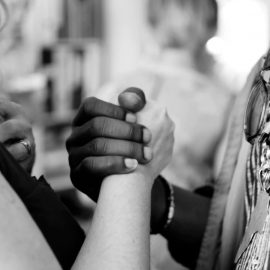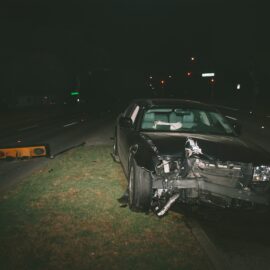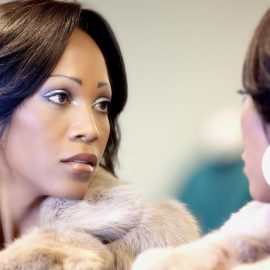

This article is an excerpt from the Shortform book guide to "The Art of Thinking Clearly" by Rolf Dobelli. Shortform has the world's best summaries and analyses of books you should be reading.
Like this article? Sign up for a free trial here .
Are you looking for The Art of Thinking Clearly quotes by Rolf Dobelli? What are some of the most noteworthy passages worth revisiting?
In The Art of Thinking Clearly, Rolf Dobelli breaks down the most common logical fallacies that inhibit decision-making, including confirmation bias, social proof, and hindsight bias. Dobelli aims to help people recognize and overcome these fallacies so they can make better decisions.
Below is a selection of passages with explanations.
The Art of Thinking Clearly
The Art of Thinking Clearly is an introduction to the most common logical fallacies that affect people’s ability to make good decisions. Logical fallacies affect everyone and are extremely difficult to avoid. Rolf Dobelli encourages readers to improve their decisions by learning how to recognize the fallacies and how to work around them.
The following The Art of Thinking Clearly quotes highlights some of the key ideas:
“Stories attract us; abstract details repel us. Consequently, entertaining side issues and backstories are prioritised over relevant facts.”
People prefer entertaining fiction to boring facts, Dobelli explains. Sometimes, this means following an interesting, story-based tangent while ignoring the central, factual issue; other times, it means incorrectly assigning a story and meaning to random events.
How can you overcome story bias? Dobelli suggests picking stories apart rather than blindly consuming and accepting them: Consider the story-teller’s intentions and what they might be hiding.
“If you have nothing to say, say nothing.’ Simplicity is the zenith of a long, arduous journey, not the starting point.”
Here, Dobelli is referring to what he calls the “twaddle tendency”: saying things that sound profound but are really meaningless. The goal isn’t to educate but to disguise ignorance and to maintain verisimilitude. People do this because of a lack of self-worth: If they were confident in their self-worth, they’d feel secure enough to reveal their ignorance and learn from others.
Avoid this tendency by testing your ideas for logic and clarity, Dobelli advises. If you don’t know something, it’s better to admit you don’t know than to hide your ignorance.
“The human brain seeks patterns and rules. In fact, it takes it one step further: If it finds no familiar patterns, it simply invents some.”
Here, Dobelli is referring to the single-cause fallacy: the tendency to attribute a chain of events to a single, simple cause. We do this because we are averse to uncertainty, including uncertainty over how events transpire. Looking for simple patterns reduces uncertainty because the fewer elements involved in a situation, the easier it is to understand the chain of events.
This mindset is dangerous because everything is affected by a complex web of influences and causes, Dobelli adds. There’s never a single cause for large, complex effects like crime or success. Trying to find one leads people to pin responsibility on a single person or group. Blaming a single person or group alleviates everyone else’s guilt without addressing systemic problems, which lets the problems continue unhindered.

———End of Preview———
Like what you just read? Read the rest of the world's best book summary and analysis of Rolf Dobelli's "The Art of Thinking Clearly" at Shortform .
Here's what you'll find in our full The Art of Thinking Clearly summary :
- A detailed look at the most common logical fallacies that inhibit decision-making
- How to recognize and overcome these fallacies to make better decisions
- Why you value things for arbitrary reasons






